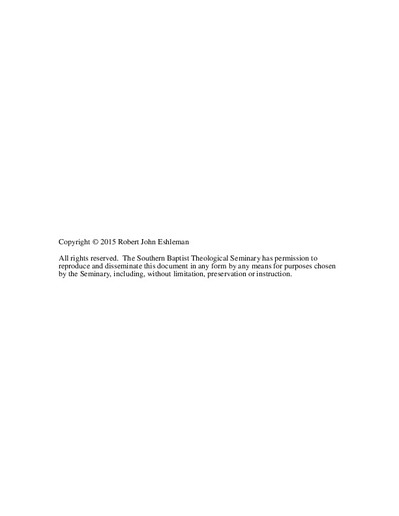A Holistic Process for Leading Organizational Change
Subject
Organizational change--Case studiesOrganizational change--Management
Change--Religious aspects--Christianity
Church renewal
Abstract
The current change theory base is fragmented and siloed. Years of research and studies have yielded nuanced conclusions that demonstrate little practical results. Recent research demonstrates the organizational change failure rate for secular businesses is as high as 80 percent. Since 1994, the church has had a steady failure and plateau rate of 80%. With over two million resources available for organizational change, and an emphasis on church revitalization by organization as such as NAMB, is it possible the disconnected variations of organizational change have created so much confusion that it prevents a simple, comprehensive, and comprehensible understanding?
In order to explore this question, and to advance a preferred method, case studies of organizational change within the bible were conducted, and secular organizational change studies were evaluated. A holistic process of organizational change is advanced that is biblical, and universal. Six functions of change are identified: cultural awareness; change catalyst; evaluation of the change and culture, decision, implementation, and monitoring of outcomes. Each function was identified from various organizational change events in the bible, and groupings of secular research.
Chapter 1 introduces the problems associated with secular and ecclesiastical change theory, as well as the six core functions of the holistic organizational change process. Chapter 2 reviews the methodology used to compile data in the change theory field. Chapter 3 will use content analysis to provide a literature review of the current change theory field. Six key functions of organizational change are identified, which displayed both divergent and inclusive characteristics with one another: cultural awareness; change catalyst; evaluation of catalyst and culture; decision; implementation; and monitoring the outcomes. Chapter 4 analyzes theological considerations and focuses on seasons of change in the Bible. Three new classifications of change will be introduced based on Scripture and exegesis: change leading to regression, change leading to revival, and covenantal development. Chapter 5 will offer the conclusions of the paper, and will make five key recommendations for future research of organizational change for secular and church related change efforts.

